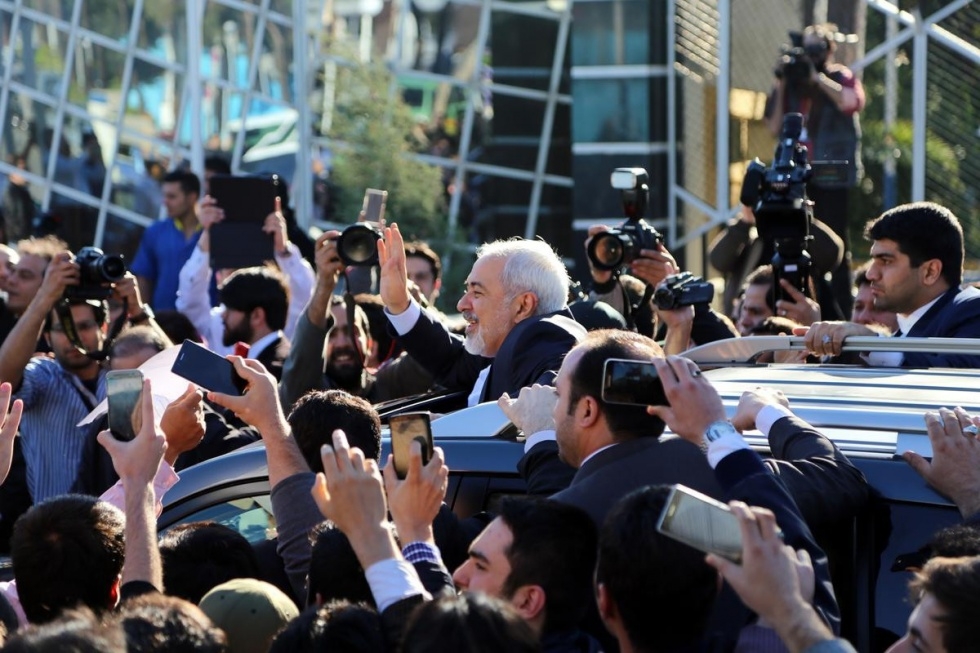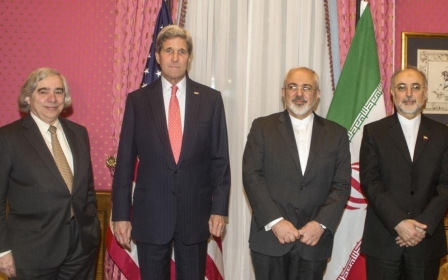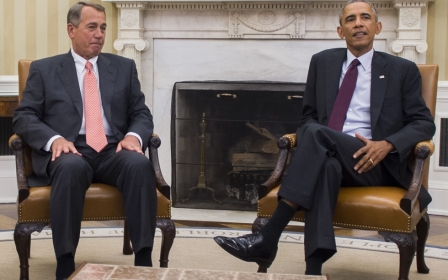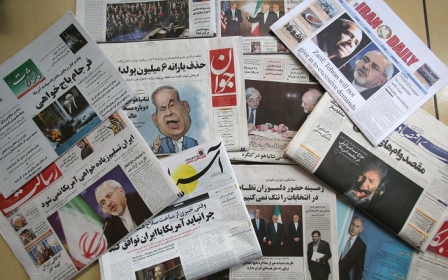Obama reaches out to sceptical Republicans and Arab leaders on Iran deal

NEW YORK – US President Barack Obama spent Friday trying to persuade sceptical Republicans in the US Congress and Sunni Muslim leaders in the Middle East that his hard-won framework deal over Iran’s nuclear programme is the best chance for regional peace and security.
White House staff said Obama was speaking with congressional leaders and royals in Bahrain, Qatar and the United Arab Emirates, following Thursday’s international deal to trade sanctions relief for safeguards and curbs on Iran’s uranium enrichment and other activities.
“I did see some ratcheted-up rhetoric on the fringes, but I actually think that most of the response here we found reassuring,” White House spokesman Eric Schultz told reporters, describing US lawmakers’ reactions to the Iran deal. “Both Republicans and Democrats alike have shown a thoughtful response.”
Iran, the US and other world powers scored a major breakthrough with a framework deal aimed at stopping Tehran getting nuclear weapons - but more work is needed to finalise the potentially historic accord before it is inked on 30 June.
Obama’s hard-line Republican opponents could yet scupper the entire process, while Israel - together with Saudi Arabia and other Sunni Muslim states - is fearful of Iran using nuclear know-how to bully neighbours and further de-stabilise an already-volatile region.
Senate and House leaders have asked Obama to let Congress rubber stamp any deal, including Republican Sen. Bob Corker, Chairman of the Senate Foreign Relations Committee, who has drafted a bill that would require a congressional review of a nuclear deal if one is reached by 30 June.
“American people, through their elected representatives, must have the opportunity to weigh in to ensure any final deal truly can eliminate the threat of Iran’s nuclear program,” he said, adding that any deal must be “enforceable” and “hold Iran accountable”.
Sen. John McCain, an influential Republican and Chairman of the Armed Service Committee, voiced concerns over the deal’s sunset clause of 10-15 years, after which Iran will be allowed to maintain and possibly expand an industrial-sized enrichment program.
Sen. Jack Reed, Ranking member of the Armed Services Committee, said: “I encourage negotiators to be as transparent as possible: the more people know about this framework, the more confidence they’ll have that a comprehensive and sustainable agreement can be reached.”
Israeli Prime Minister Benjamin Netanyahu has long warned against Obama’s Iran deal. He said it posed a grave danger to Israel and the region and demanded a “clear and unambiguous Iranian recognition of Israel’s right to exist” in any final accord.
White House spokesman Schultz said he understood the Israeli leader’s fears, adding: “The president would never sign on to a deal that he felt was a threat to the state of Israel.”
Marie Harf, a US State Department spokeswoman, said US envoy Tony Blinken was soon headed to Lebanon, Saudi Arabia, the UAE, Oman and Tunisia to meet officials and discuss a pact with a country that is widely seen as a threat to Sunni Arab states.
“Obviously, Iran will be at the top of the agenda at every stop - both the parameters for an agreement that were agreed to in Lausanne, but also other issues that our Gulf partners care about,” she told reporters on Friday, referring to the Swiss city where talks took place.
Iran and six major powers late on Thursday agreed after 18 months of talks - culminating in a gruelling marathon of sleepless nights in a Swiss hotel - the main parameters of a final deal. According to the US, Iran has promised to slash its uranium enrichment capacity by two-thirds and reduce its enriched uranium stock by 98 percent.
Iran will also change the design of a reactor under construction at Arak so that it cannot produce plutonium, the alternative to uranium for a bomb, and submit to ultra-tight UN inspections. This will extend the “breakout” time needed to make one bomb’s worth of nuclear material to one year and make any dash to get the bomb easily detectable, the US says.
The Islamic Republic denies wanting nuclear weapons, but its negotiating partners - the US, China, Russia, Britain, Germany and France - also gave ground, saying they will lift US, EU and UN Security Council sanctions that have strangled Iran's economy.
The framework agreement was however very light on detail on when exactly all this will happen once the final comprehensive deal is agreed on 30 June. Iranians want trading curbs lifted immediately, but the sanctions will not all be removed in one fell swoop on 1 July.
Instead they will be tied to Iran first carrying out what it has undertaken to do, something to be verified by the UN atomic watchdog, the International Atomic Energy Agency.
“A lot of thorny issues will have to be resolved in the next three months,” said Ali Vaez from the International Crisis Group, a Brussels-based think tank. “This accomplishment is not final. It is as fragile as the forces against it are formidable.”
New MEE newsletter: Jerusalem Dispatch
Sign up to get the latest insights and analysis on Israel-Palestine, alongside Turkey Unpacked and other MEE newsletters
Middle East Eye delivers independent and unrivalled coverage and analysis of the Middle East, North Africa and beyond. To learn more about republishing this content and the associated fees, please fill out this form. More about MEE can be found here.




